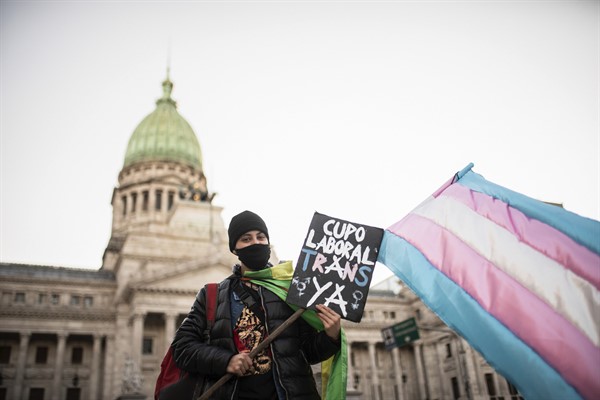In what could be seen as petty revenge for Argentina’s legalization of abortion in 2020, Horacio Rodriguez Larreta, the chief of government of the city of Buenos Aires, Argentina’s capital, has banned gender-inclusive language in the city’s public schools.
The decision, which was announced at the end of June, is the latest development in what many consider a widening war on feminism in Argentina. The main advocates of the ban, the Royal Spanish Academy and the Argentine Academy of Letters, have argued that changing the Spanish language to accommodate gender neutrality would be confusing and, in any case, unnecessary. As Alicia Zorrilla, president of the Argentine Academy of Letters, explained, “The grammatical masculine is already inclusive [and] covers that function as an unmarked term of the gender opposition.”
In Spanish, groups of people are automatically described using the masculine suffix “-os.” For example, a group all dressed in white would be described as “todos vestidos de blanco,” or “all dressed in white,” with the noun “todos” and adjective “vestidos” ending in the masculine “-os,” rather than the feminine “-as,” even if the majority of the group identifies as women. While Zorrilla and her allies are technically correct that masculine plurals can be used to refer to mixed-gender groups, activists say this explanation ignores the performative aspects of language; that is, the capacity it has to create social realities.

